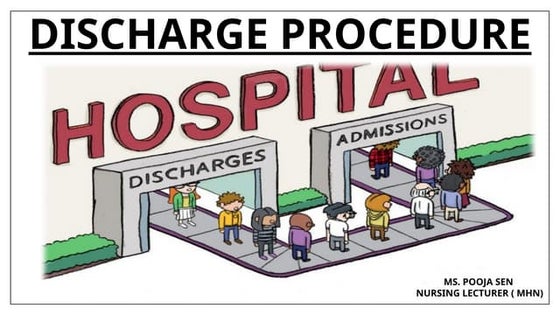Appreciative Inquiry Made Simple presentation
2 likes1,372 views
Appreciative Inquiry Made Simple presentation for Division of Student Affairs staff training at San Jose State University
1 of 15
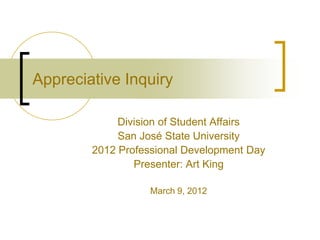














Recommended
Appreciative Inquiry for Creative Problem Solving



Appreciative Inquiry for Creative Problem SolvingLucian De Koker
╠²
Appreciative Inquiry (AI) is an approach to problem solving that focuses on identifying what is working well and envisioning positive potential futures rather than dwelling on problems. It involves a 4D process of Discovering strengths, Dreaming of possibilities, Designing the ideal future state, and bringing that Destiny to life. Creative problem solving should only be used when there is a need, mandate, motivation, and openness to new approaches, and not when predefined answers or processes already exist. It uses a CPPC method involving defining the Context, Purpose, Process and Content of the problem solving effort.Change management and organization development appreciative enquiry



Change management and organization development appreciative enquiryShubham Singhal
╠²
Appreciative Inquiry (AI) is a method for studying and facilitating positive change in social systems like groups, organizations, and communities. It involves collective inquiry into what is working best to envision an ideal future state, then collective design of how to achieve that desired future. Rather than focusing on problems, it appreciates past and present strengths. The document then discusses the principles and 4Ds process of AI, examples of its use in businesses, how it can improve various aspects of organizations, and the impacts found after one organization used AI for large-scale change.Woodbury High Professional workshop 2010



Woodbury High Professional workshop 2010Mindful Innovation, Inc.
╠²
The document outlines plans for a staff workshop aimed at improving student engagement at Woodbury High School. The workshop will bring staff together to create a shared vision of engaged students and staff, establish trust through group activities, challenge limiting beliefs, and develop action plans to commit to engaging all students. The goals are to connect staff, establish a collaborative culture, and provide strategies and support for improving engagement.Making Magic



Making Magicdrew davidson
╠²
The document discusses research on creative teams and processes. A study of 60 projects from Carnegie Mellon's Entertainment Technology Center found that teams with more diverse expertise experienced more conflict during the process but produced more innovative, higher quality final products. The document provides tips for effective creative work, including valuing diversity, dealing with challenges from people, taking responsibility, and developing comfort with chaos and the unknown. It emphasizes that creative work requires collaborative problem solving and embracing diversity.Producing



Producingdrew davidson
╠²
The document discusses producing creative works and making magic through an iterative process. It notes that the creative process is inherently chaotic but that more diversity in teams can lead to more innovative and higher quality results, though it also leads to more conflict in the process. It emphasizes the importance of orchestration and support to manage the chaos and harness the benefits of diversity.Creativity and Innovation in Education



Creativity and Innovation in EducationAggeliki Nikolaou
╠²
Transfering my experience from last years teaching my young students on how to become creative and how to be Makers.
My presentation for an Erasmus plus program. Creative Chaos



Creative Chaosdrew davidson
╠²
This document discusses creative collaboration and the challenges of managing creative chaos. It summarizes a study of creative teams at Carnegie Mellon's Entertainment Technology Center which found that more diverse teams experience more conflict during the process but produce higher quality, more innovative end products. It provides tips for orchestrating creativity such as valuing diversity, using improv techniques, providing feedback, and embracing failure as an opportunity to learn and improve. The key is supporting teams through the inherently chaotic creative process.Creative Chaos



Creative Chaosdrew davidson
╠²
The document discusses how diversity and creative chaos can lead to innovation when properly supported and orchestrated. It summarizes a study on creative teams at CMU that found more diverse teams experience more conflict during the process but produce more useful, high-quality products. It provides tips for collaborating creatively such as valuing diversity, using feedback, workshops, and embracing failure to learn and improve. The key is supporting diversity, collective intelligence, and transformational experiences through collaborative jams and problem solving.Appreciative inquiry



Appreciative inquiryShweta Goswami
╠²
Appreciative Inquiry, an organizational development method, is the study and exploration of what gives life to human systems when they function at their best. Classroom MRIs--Mini-Research Intensives--Using Appreciative Inquiry (MSC 2008)



Classroom MRIs--Mini-Research Intensives--Using Appreciative Inquiry (MSC 2008)Mark Eutsler
╠²
This document discusses using Appreciative Inquiry (AI) in classroom settings. AI focuses on identifying what is working well and envisioning how to replicate successes, rather than focusing on problems. The document outlines key concepts of AI, such as valuing strengths and envisioning positive futures. It provides examples of AI-focused questions that could be asked in classroom settings instead of conventional problem-focused questions. The goal of using AI in education is to create a positive learning environment that brings out the best in students.Appreciative Inquiry: Big Picture, Big Passion, Exceptional Achievement



Appreciative Inquiry: Big Picture, Big Passion, Exceptional AchievementiAttain
╠²
An introduction to Appreciative Inquiry, the process for organizational innovation and change based on positive psychology.Program Administrator: Architect Of A Learning Organization (║▌║▌▀Żshare Version)



Program Administrator: Architect Of A Learning Organization (║▌║▌▀Żshare Version)Silvia Laborde
╠²
The document outlines the key elements needed for an educational institution to succeed as a learning organization. It discusses how the roles of an administrator include promoting good communication, helping staff develop personal mastery and clarify mental models, aligning personal and institutional visions, and using team-based approaches to problem solving. The document also summarizes Peter Senge's five disciplines of a learning organization: systems thinking, personal mastery, mental models, shared vision, and team learning.Future of Healthcare - Delivery Teams



Future of Healthcare - Delivery Teamsusffw
╠²
The document outlines an Appreciative Inquiry (AI) model for building resilient work teams through teambuilding exercises. It discusses using AI to identify the strengths of team members and past successes by asking positive questions to establish goals and commitments. Examples provided illustrate how AI can be applied to topics like mentoring, conflict resolution, and developing a team philosophy.Appreciative Inquiry for Organizational Change 



Appreciative Inquiry for Organizational Change Amy Lewis
╠²
Appreciative Inquiry (AI) is a positive approach to change management that focuses on the strengths of the organization rather than the weaknesses. This model is utilized for large scale change management that will ignite engagement and inspiration into a diverse workforce. Appreciative inquiry



Appreciative inquirySeta Wicaksana
╠²
The document discusses Appreciative Inquiry, which is an approach to organizational change that focuses on an organization's strengths and potentials rather than its problems.
1) Appreciative Inquiry involves identifying what works best in an organization by encouraging employees to share positive stories and experiences.
2) This process helps envision how the organization can be improved by building on existing strengths and successes.
3) Action plans are then developed by engaging employees in designing how to achieve this improved future state through utilizing their strengths and building on past successes.Appreciative Inquiry: A Revolution in Change



Appreciative Inquiry: A Revolution in Changesuzukiassociation
╠²
Appreciative Inquiry is a method for positive change that focuses on an organization's strengths rather than its problems. It involves (1) discovering what gives life to an organization when it is most effective, (2) envisioning what could be to inspire change, (3) designing what should be with whole-system participation, and (4) delivering on the vision through individual and organizational action. The method mobilizes strategic change by shaping the future based on an organization's core strengths and values.And Now for the Good News: Appreciative Inquiry



And Now for the Good News: Appreciative InquiryLibrary Leadership & Management Association (LLAMA), American Library Association (ALA)
╠²
Program presented an overview of appreciative inquiry, the study and exploration of what gives life to human systems when they function at their best. This approach to organizational change is based on the assumption that questions and dialogue about strengths, successes, values, hopes and dreams are themselves transformational. It offers a positive way to engage library staff in assessment. Although this method had its inception in the health care industry, this program will demonstrate its relevance to continuous improvement in libraries. Presenters included Maureen Sullivan and Gene Spencer.Presentation IB Conference Barcelona



Presentation IB Conference BarcelonaFrancis McGuigan
╠²
Appreciative Inquiry is a philosophy and process for organizational change that focuses on what is working well rather than trying to fix problems. It involves discovering an organization's strengths through appreciating past successes, envisioning potential positive futures, and designing ways to achieve this vision. The key aspects of Appreciative Inquiry include its 4 D cycle of Discovery, Dream, Design, and Destiny and using positive, open-ended questions to identify what employees value most in their work. Appreciative Inquiry aims to build on an organization's strengths and potential through collaborative processes that energize employees and create positive change.Appreciative inquiry - November 2011



Appreciative inquiry - November 20114DContentEnglish
╠²
The document provides an overview of Appreciative Inquiry (AI), which is an organizational development methodology focused on identifying an organization's strengths and positive aspects to facilitate change. It discusses the key principles and 4-D cycle of AI, which includes discovery of an organization's positive core, dreaming about possibilities, designing the ideal organization, and destiny of implementing changes. The 4-D cycle is intended to unleash an organization's energy and potential for transformation. The document also shares examples of applying AI through appreciative interviews, identifying themes, and developing commitments and plans of action.A new approach to organizational change appreciative inquiry



A new approach to organizational change appreciative inquiryThilaganathan Sithamparappillai
╠²
Appreciative Inquiry is a new approach to organizational change that focuses on amplifying an organization's strengths rather than fixing its problems. It involves identifying what is already working well through collaborative dialogue. The conversations uncover successful experiences and positive aspects to build a shared vision of the organization's future. Rather than examining what is wrong, Appreciative Inquiry concentrates on possibilities, capabilities, and assets to generate energy and enthusiasm for change.Winnie The Pooh Comes To MDT



Winnie The Pooh Comes To MDTHealth Easy Peasy
╠²
This document summarizes a presentation on using Appreciative Inquiry to improve multidisciplinary team meetings. It discusses how focusing on strengths rather than problems can generate new ideas and build relationships. The presentation teaches techniques to ask questions that move teams forward in a positive way and focus discussions on solutions. It suggests using concepts from the book Winnie the Pooh to explore shifting team dynamics and perspectives to better serve children and families.Pentascope Masterclass Cooperrider 2008



Pentascope Masterclass Cooperrider 2008dlc6
╠²
This document provides an overview of Appreciative Inquiry and its applications in positive organizational change. It discusses principles of AI such as constructionism, simultaneity, and positive framing. The document outlines an AI summit method using large group methods to align an organization's strengths. It also provides example topics and questions for AI interviews focused on strengths, aspirations, opportunities, and results.Appreciative Inquiry Strengths Based Development



Appreciative Inquiry Strengths Based Developmentkarendw1965
╠²
Appreciative Inquiry (AI) is an organizational development process that engages people at all levels to create positive change. It is based on the premise that organizations change based on the questions they ask. If an organization asks about problems, more problems will be found, but if it appreciates strengths, more strengths will emerge. AI uses a 4D cycle of Discovery, Dream, Design, and Destiny to shift focus from problems to strengths and build a shared vision of the future. Many organizations have successfully used AI for strategic planning, mergers, team building and more.Appreciative Inquiry An Introduction



Appreciative Inquiry An IntroductionDBishop_Consulting
╠²
Appreciative Inquiry (AI) is a strengths-based approach to organizational change that focuses on identifying what is working well and envisioning positive potential futures rather than dwelling on problems. The document outlines the core principles of AI, which include appreciating past successes, envisioning desired futures through positive dialogue, and taking inspired action. It contrasts the traditional problem-solving approach with AI's focus on embracing organizations as living systems with potential.FNS Appreciative Inquiry



FNS Appreciative InquiryNoel E K Tan
╠²
This document provides an introduction and overview of Appreciative Inquiry (AI). It discusses how AI takes a strengths-based approach to change by focusing on what is working well rather than problems. The objectives are to showcase AI to participants and allow them to embark on their own AI process focused on facilitation. It outlines the AI process which includes Discover (learning about past successes), Dream (envisioning potential positive futures), Design (developing plans to achieve dreams) and Destiny (sustaining momentum for change). Examples are provided of provocative propositions that inspire change by describing an ideal future state in affirmative terms. The document aims to introduce participants to AI and guide them through an initial AI process focused on facilitationAppreciative Agile: Overturning the Problem Bias



Appreciative Agile: Overturning the Problem BiasSue Johnston, MBA + a bunch of other stuff
╠²
This document discusses Appreciative Inquiry and how it can be applied to agile teams. Appreciative Inquiry is a philosophy and process that focuses on what works well rather than identifying problems. It involves asking positive, open-ended questions to discover strengths and imagine possibilities. The document outlines how Appreciative Inquiry uses a 5 D process (Define, Discover, Dream, Design, Destiny) and appreciative interviews to shift a group's mindset. It provides examples of reframing questions from a problem-focused to an appreciative lens and suggests adapting Appreciative Inquiry through appreciative retrospectives and visualizing desired outcomes.Nursing Facilities Brittany Davie Nayra Rodriguez Erik.docx



Nursing Facilities Brittany Davie Nayra Rodriguez Erik.docxcherishwinsland
╠²
Nursing Facilities Brittany Davie
Nayra Rodriguez
Erika Dennis
Kadejah Felton
Morgan McDonald
Avery McGee
Amistad Nursing & Rehabilitation Center
ŌĆ£Set a standard for quality care through specialized treatment and individualize core plans in our community.
Their commitment is to provide quality care and quality of life opportunities for a rewarding experience of comfort, dignity, and independenceŌĆØ.
Facility Information
’é┤ Founded in 1974 (42 Years in
Business)
’é┤ Operated by TAG Management
Services
’é┤ For Profit ownership from Val
Verde County Hospital District
’é┤ Total Bed Count: 200. Currently
111 Occupied (68 % Full)
’é┤ Common Resident: Female,
Average Age is 78
’é┤ Common Conditions: Dementia
and Cardiovascular Disease
Services Provided:
’é┤ Rehabilitation
Physical Therapy, Occupational Therapy,
and Speech Therapy
’é┤ Nursing Services
Seven-day-a week R.N. coverage with 24
hour licensed nursing care and
appropriate individualized treatment
programs provide residents with
therapeutic care.
’é┤ Activities
Directors provide stimulating daily activates
such as social services, beauty & barbershop,
outings, ice cream social, exercise classes,
community volunteer groups, theme parties
and more.
200 Riverside Drive
Uvalde, TX 78801
(832) 278- 5641
Finance
’é┤ Payments Accepted
Medicare, Medicaid, Private Insurance and
Private Pay
’é┤ Daily Cost
Private Room: $125
Semi- Private Room: $100
Marketing
’é┤ Facebook
’é┤ Monthly Newsletter
’é┤ Activities with the community
Organizational Structure
’é┤ Nursing staff consists of Registered Nurses (RN), Licensed Vocational Nurses (LVN),
Certified Nurse Aides (CNA), Certified Medication Aides (CMA) and Restorative Nurse Aides
(RNA).
’é┤ The administrative nursing team includes the Director of Nurses (DoN) and Assistant Director of
Nursing (ADoN).
In addition toŌĆ”
’é┤ Director of Nursing
’é┤ Assistant Director of Nursing
’é┤ Director of Rehabilitation
’é┤ Director of Housekeeping and Maintenance
’é┤ Director of Office Management
’é┤ Director of Social Work
Licensing/Accreditation
’é┤ Neither of the facilities are accredited
’é┤ However, all working professionals are
licensed and/or certified
’é┤ Dietitians -Texas State Board of Examiners
of Dietitians
’é┤ Medical Radiologic Technologist -
American Registry of Radiologic
Technologists
’é┤ Orthoptists and Prosthetists - Texas Board
of Orthotics and Prosthetics
’é┤ Social Workers - Texas Board of Social
Work Examiners
’é┤ Speech-Language Pathologists:
American Speech Language Hearing
Association
’é┤ Physical Therapy - Texas Board of Physical
Therapy
’é┤ Occupational Therapy - American
Occupational Therapy Association
ŌĆ£We look forward to the opportunity to serve you and your family, as we've done for generations of Texas familiesŌĆØ
Listed are a few examples of violations from both facilities.
Facebook Review:
November 3, 2016
ŌĆ£Brin.Year 10 The Senior Phase Session 3 Term 1.pptx



Year 10 The Senior Phase Session 3 Term 1.pptxmansk2
╠²
Year 10 The Senior Phase Session 3 Term 1.pptxBISNIS BERKAH BERANGKAT KE MEKKAH ISTIKMAL SYARIAH



BISNIS BERKAH BERANGKAT KE MEKKAH ISTIKMAL SYARIAHcoacharyasetiyaki
╠²
BISNIS BERKAH BERANGKAT KE MEKKAH ISTIKMAL SYARIAHMore Related Content
Similar to Appreciative Inquiry Made Simple presentation (20)
Appreciative inquiry



Appreciative inquiryShweta Goswami
╠²
Appreciative Inquiry, an organizational development method, is the study and exploration of what gives life to human systems when they function at their best. Classroom MRIs--Mini-Research Intensives--Using Appreciative Inquiry (MSC 2008)



Classroom MRIs--Mini-Research Intensives--Using Appreciative Inquiry (MSC 2008)Mark Eutsler
╠²
This document discusses using Appreciative Inquiry (AI) in classroom settings. AI focuses on identifying what is working well and envisioning how to replicate successes, rather than focusing on problems. The document outlines key concepts of AI, such as valuing strengths and envisioning positive futures. It provides examples of AI-focused questions that could be asked in classroom settings instead of conventional problem-focused questions. The goal of using AI in education is to create a positive learning environment that brings out the best in students.Appreciative Inquiry: Big Picture, Big Passion, Exceptional Achievement



Appreciative Inquiry: Big Picture, Big Passion, Exceptional AchievementiAttain
╠²
An introduction to Appreciative Inquiry, the process for organizational innovation and change based on positive psychology.Program Administrator: Architect Of A Learning Organization (║▌║▌▀Żshare Version)



Program Administrator: Architect Of A Learning Organization (║▌║▌▀Żshare Version)Silvia Laborde
╠²
The document outlines the key elements needed for an educational institution to succeed as a learning organization. It discusses how the roles of an administrator include promoting good communication, helping staff develop personal mastery and clarify mental models, aligning personal and institutional visions, and using team-based approaches to problem solving. The document also summarizes Peter Senge's five disciplines of a learning organization: systems thinking, personal mastery, mental models, shared vision, and team learning.Future of Healthcare - Delivery Teams



Future of Healthcare - Delivery Teamsusffw
╠²
The document outlines an Appreciative Inquiry (AI) model for building resilient work teams through teambuilding exercises. It discusses using AI to identify the strengths of team members and past successes by asking positive questions to establish goals and commitments. Examples provided illustrate how AI can be applied to topics like mentoring, conflict resolution, and developing a team philosophy.Appreciative Inquiry for Organizational Change 



Appreciative Inquiry for Organizational Change Amy Lewis
╠²
Appreciative Inquiry (AI) is a positive approach to change management that focuses on the strengths of the organization rather than the weaknesses. This model is utilized for large scale change management that will ignite engagement and inspiration into a diverse workforce. Appreciative inquiry



Appreciative inquirySeta Wicaksana
╠²
The document discusses Appreciative Inquiry, which is an approach to organizational change that focuses on an organization's strengths and potentials rather than its problems.
1) Appreciative Inquiry involves identifying what works best in an organization by encouraging employees to share positive stories and experiences.
2) This process helps envision how the organization can be improved by building on existing strengths and successes.
3) Action plans are then developed by engaging employees in designing how to achieve this improved future state through utilizing their strengths and building on past successes.Appreciative Inquiry: A Revolution in Change



Appreciative Inquiry: A Revolution in Changesuzukiassociation
╠²
Appreciative Inquiry is a method for positive change that focuses on an organization's strengths rather than its problems. It involves (1) discovering what gives life to an organization when it is most effective, (2) envisioning what could be to inspire change, (3) designing what should be with whole-system participation, and (4) delivering on the vision through individual and organizational action. The method mobilizes strategic change by shaping the future based on an organization's core strengths and values.And Now for the Good News: Appreciative Inquiry



And Now for the Good News: Appreciative InquiryLibrary Leadership & Management Association (LLAMA), American Library Association (ALA)
╠²
Program presented an overview of appreciative inquiry, the study and exploration of what gives life to human systems when they function at their best. This approach to organizational change is based on the assumption that questions and dialogue about strengths, successes, values, hopes and dreams are themselves transformational. It offers a positive way to engage library staff in assessment. Although this method had its inception in the health care industry, this program will demonstrate its relevance to continuous improvement in libraries. Presenters included Maureen Sullivan and Gene Spencer.Presentation IB Conference Barcelona



Presentation IB Conference BarcelonaFrancis McGuigan
╠²
Appreciative Inquiry is a philosophy and process for organizational change that focuses on what is working well rather than trying to fix problems. It involves discovering an organization's strengths through appreciating past successes, envisioning potential positive futures, and designing ways to achieve this vision. The key aspects of Appreciative Inquiry include its 4 D cycle of Discovery, Dream, Design, and Destiny and using positive, open-ended questions to identify what employees value most in their work. Appreciative Inquiry aims to build on an organization's strengths and potential through collaborative processes that energize employees and create positive change.Appreciative inquiry - November 2011



Appreciative inquiry - November 20114DContentEnglish
╠²
The document provides an overview of Appreciative Inquiry (AI), which is an organizational development methodology focused on identifying an organization's strengths and positive aspects to facilitate change. It discusses the key principles and 4-D cycle of AI, which includes discovery of an organization's positive core, dreaming about possibilities, designing the ideal organization, and destiny of implementing changes. The 4-D cycle is intended to unleash an organization's energy and potential for transformation. The document also shares examples of applying AI through appreciative interviews, identifying themes, and developing commitments and plans of action.A new approach to organizational change appreciative inquiry



A new approach to organizational change appreciative inquiryThilaganathan Sithamparappillai
╠²
Appreciative Inquiry is a new approach to organizational change that focuses on amplifying an organization's strengths rather than fixing its problems. It involves identifying what is already working well through collaborative dialogue. The conversations uncover successful experiences and positive aspects to build a shared vision of the organization's future. Rather than examining what is wrong, Appreciative Inquiry concentrates on possibilities, capabilities, and assets to generate energy and enthusiasm for change.Winnie The Pooh Comes To MDT



Winnie The Pooh Comes To MDTHealth Easy Peasy
╠²
This document summarizes a presentation on using Appreciative Inquiry to improve multidisciplinary team meetings. It discusses how focusing on strengths rather than problems can generate new ideas and build relationships. The presentation teaches techniques to ask questions that move teams forward in a positive way and focus discussions on solutions. It suggests using concepts from the book Winnie the Pooh to explore shifting team dynamics and perspectives to better serve children and families.Pentascope Masterclass Cooperrider 2008



Pentascope Masterclass Cooperrider 2008dlc6
╠²
This document provides an overview of Appreciative Inquiry and its applications in positive organizational change. It discusses principles of AI such as constructionism, simultaneity, and positive framing. The document outlines an AI summit method using large group methods to align an organization's strengths. It also provides example topics and questions for AI interviews focused on strengths, aspirations, opportunities, and results.Appreciative Inquiry Strengths Based Development



Appreciative Inquiry Strengths Based Developmentkarendw1965
╠²
Appreciative Inquiry (AI) is an organizational development process that engages people at all levels to create positive change. It is based on the premise that organizations change based on the questions they ask. If an organization asks about problems, more problems will be found, but if it appreciates strengths, more strengths will emerge. AI uses a 4D cycle of Discovery, Dream, Design, and Destiny to shift focus from problems to strengths and build a shared vision of the future. Many organizations have successfully used AI for strategic planning, mergers, team building and more.Appreciative Inquiry An Introduction



Appreciative Inquiry An IntroductionDBishop_Consulting
╠²
Appreciative Inquiry (AI) is a strengths-based approach to organizational change that focuses on identifying what is working well and envisioning positive potential futures rather than dwelling on problems. The document outlines the core principles of AI, which include appreciating past successes, envisioning desired futures through positive dialogue, and taking inspired action. It contrasts the traditional problem-solving approach with AI's focus on embracing organizations as living systems with potential.FNS Appreciative Inquiry



FNS Appreciative InquiryNoel E K Tan
╠²
This document provides an introduction and overview of Appreciative Inquiry (AI). It discusses how AI takes a strengths-based approach to change by focusing on what is working well rather than problems. The objectives are to showcase AI to participants and allow them to embark on their own AI process focused on facilitation. It outlines the AI process which includes Discover (learning about past successes), Dream (envisioning potential positive futures), Design (developing plans to achieve dreams) and Destiny (sustaining momentum for change). Examples are provided of provocative propositions that inspire change by describing an ideal future state in affirmative terms. The document aims to introduce participants to AI and guide them through an initial AI process focused on facilitationAppreciative Agile: Overturning the Problem Bias



Appreciative Agile: Overturning the Problem BiasSue Johnston, MBA + a bunch of other stuff
╠²
This document discusses Appreciative Inquiry and how it can be applied to agile teams. Appreciative Inquiry is a philosophy and process that focuses on what works well rather than identifying problems. It involves asking positive, open-ended questions to discover strengths and imagine possibilities. The document outlines how Appreciative Inquiry uses a 5 D process (Define, Discover, Dream, Design, Destiny) and appreciative interviews to shift a group's mindset. It provides examples of reframing questions from a problem-focused to an appreciative lens and suggests adapting Appreciative Inquiry through appreciative retrospectives and visualizing desired outcomes.Nursing Facilities Brittany Davie Nayra Rodriguez Erik.docx



Nursing Facilities Brittany Davie Nayra Rodriguez Erik.docxcherishwinsland
╠²
Nursing Facilities Brittany Davie
Nayra Rodriguez
Erika Dennis
Kadejah Felton
Morgan McDonald
Avery McGee
Amistad Nursing & Rehabilitation Center
ŌĆ£Set a standard for quality care through specialized treatment and individualize core plans in our community.
Their commitment is to provide quality care and quality of life opportunities for a rewarding experience of comfort, dignity, and independenceŌĆØ.
Facility Information
’é┤ Founded in 1974 (42 Years in
Business)
’é┤ Operated by TAG Management
Services
’é┤ For Profit ownership from Val
Verde County Hospital District
’é┤ Total Bed Count: 200. Currently
111 Occupied (68 % Full)
’é┤ Common Resident: Female,
Average Age is 78
’é┤ Common Conditions: Dementia
and Cardiovascular Disease
Services Provided:
’é┤ Rehabilitation
Physical Therapy, Occupational Therapy,
and Speech Therapy
’é┤ Nursing Services
Seven-day-a week R.N. coverage with 24
hour licensed nursing care and
appropriate individualized treatment
programs provide residents with
therapeutic care.
’é┤ Activities
Directors provide stimulating daily activates
such as social services, beauty & barbershop,
outings, ice cream social, exercise classes,
community volunteer groups, theme parties
and more.
200 Riverside Drive
Uvalde, TX 78801
(832) 278- 5641
Finance
’é┤ Payments Accepted
Medicare, Medicaid, Private Insurance and
Private Pay
’é┤ Daily Cost
Private Room: $125
Semi- Private Room: $100
Marketing
’é┤ Facebook
’é┤ Monthly Newsletter
’é┤ Activities with the community
Organizational Structure
’é┤ Nursing staff consists of Registered Nurses (RN), Licensed Vocational Nurses (LVN),
Certified Nurse Aides (CNA), Certified Medication Aides (CMA) and Restorative Nurse Aides
(RNA).
’é┤ The administrative nursing team includes the Director of Nurses (DoN) and Assistant Director of
Nursing (ADoN).
In addition toŌĆ”
’é┤ Director of Nursing
’é┤ Assistant Director of Nursing
’é┤ Director of Rehabilitation
’é┤ Director of Housekeeping and Maintenance
’é┤ Director of Office Management
’é┤ Director of Social Work
Licensing/Accreditation
’é┤ Neither of the facilities are accredited
’é┤ However, all working professionals are
licensed and/or certified
’é┤ Dietitians -Texas State Board of Examiners
of Dietitians
’é┤ Medical Radiologic Technologist -
American Registry of Radiologic
Technologists
’é┤ Orthoptists and Prosthetists - Texas Board
of Orthotics and Prosthetics
’é┤ Social Workers - Texas Board of Social
Work Examiners
’é┤ Speech-Language Pathologists:
American Speech Language Hearing
Association
’é┤ Physical Therapy - Texas Board of Physical
Therapy
’é┤ Occupational Therapy - American
Occupational Therapy Association
ŌĆ£We look forward to the opportunity to serve you and your family, as we've done for generations of Texas familiesŌĆØ
Listed are a few examples of violations from both facilities.
Facebook Review:
November 3, 2016
ŌĆ£Brin.And Now for the Good News: Appreciative Inquiry



And Now for the Good News: Appreciative InquiryLibrary Leadership & Management Association (LLAMA), American Library Association (ALA)
╠²
Recently uploaded (20)
Year 10 The Senior Phase Session 3 Term 1.pptx



Year 10 The Senior Phase Session 3 Term 1.pptxmansk2
╠²
Year 10 The Senior Phase Session 3 Term 1.pptxBISNIS BERKAH BERANGKAT KE MEKKAH ISTIKMAL SYARIAH



BISNIS BERKAH BERANGKAT KE MEKKAH ISTIKMAL SYARIAHcoacharyasetiyaki
╠²
BISNIS BERKAH BERANGKAT KE MEKKAH ISTIKMAL SYARIAHDot NET Core Interview Questions PDF By ScholarHat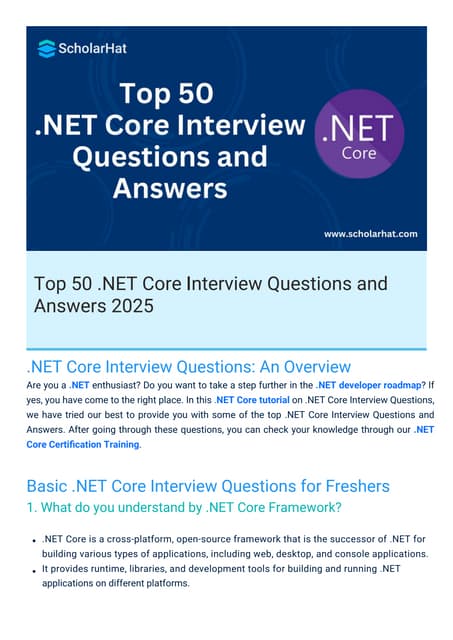



Dot NET Core Interview Questions PDF By ScholarHatScholarhat
╠²
Dot NET Core Interview Questions PDF By ScholarHatHannah Borhan and Pietro Gagliardi OECD present 'From classroom to community ...



Hannah Borhan and Pietro Gagliardi OECD present 'From classroom to community ...EduSkills OECD
╠²
Hannah Borhan, Research Assistant, OECD Education and Skills Directorate and Pietro Gagliardi, Policy Analyst, OECD Public Governance Directorate present at the OECD webinar 'From classroom to community engagement: Promoting active citizenship among young people" on 25 February 2025. You can find the recording of the webinar on the website https://oecdedutoday.com/webinars/
How to Configure Proforma Invoice in Odoo 18 Sales



How to Configure Proforma Invoice in Odoo 18 SalesCeline George
╠²
In this slide, weŌĆÖll discuss on how to configure proforma invoice in Odoo 18 Sales module. A proforma invoice is a preliminary invoice that serves as a commercial document issued by a seller to a buyer.NUTRITIONAL ASSESSMENT AND EDUCATION - 5TH SEM.pdf



NUTRITIONAL ASSESSMENT AND EDUCATION - 5TH SEM.pdfDolisha Warbi
╠²
NUTRITIONAL ASSESSMENT AND EDUCATION, Introduction, definition, types - macronutrient and micronutrient, food pyramid, meal planning, nutritional assessment of individual, family and community by using appropriate method, nutrition education, nutritional rehabilitation, nutritional deficiency disorder, law/policies regarding nutrition in India, food hygiene, food fortification, food handling and storage, food preservation, food preparation, food purchase, food consumption, food borne diseases, food poisoningEntity Framework Interview Questions PDF By ScholarHat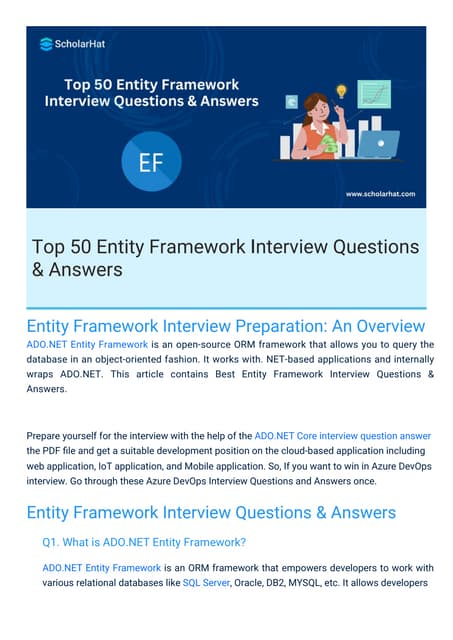



Entity Framework Interview Questions PDF By ScholarHatScholarhat
╠²
Entity Framework Interview Questions PDF By ScholarHatASP.NET Web API Interview Questions By Scholarhat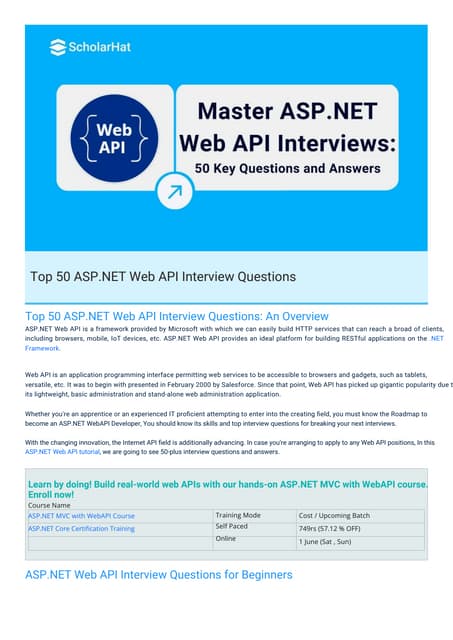



ASP.NET Web API Interview Questions By ScholarhatScholarhat
╠²
ASP.NET Web API Interview Questions By ScholarhatHow to Configure Deliver Content by Email in Odoo 18 Sales



How to Configure Deliver Content by Email in Odoo 18 SalesCeline George
╠²
In this slide, weŌĆÖll discuss on how to configure proforma invoice in Odoo 18 Sales module. A proforma invoice is a preliminary invoice that serves as a commercial document issued by a seller to a buyer.Effective Product Variant Management in Odoo 18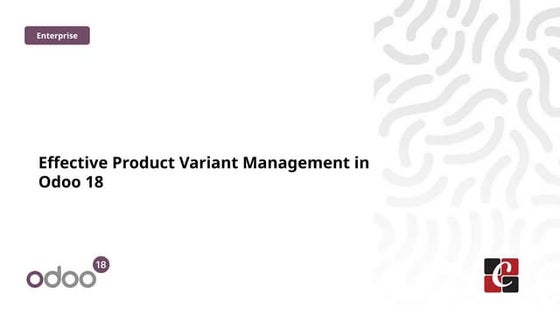



Effective Product Variant Management in Odoo 18Celine George
╠²
In this slide weŌĆÖll discuss on the effective product variant management in Odoo 18. Odoo concentrates on managing product variations and offers a distinct area for doing so. Product variants provide unique characteristics like size and color to single products, which can be managed at the product template level for all attributes and variants or at the variant level for individual variants.Meeting the needs of modern students?, Selina McCoy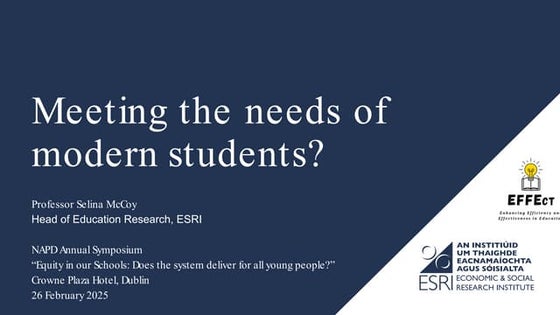



Meeting the needs of modern students?, Selina McCoyEconomic and Social Research Institute
╠²
NAPD Annual Symposium
ŌĆ£Equity in our Schools: Does the system deliver for all young people?ŌĆØBß╗ś TEST KIß╗éM TRA GIß╗«A K├ī 2 - TIß║ŠNG ANH 10,11,12 - CHUß║©N FORM 2025 - GLOBAL SU...



Bß╗ś TEST KIß╗éM TRA GIß╗«A K├ī 2 - TIß║ŠNG ANH 10,11,12 - CHUß║©N FORM 2025 - GLOBAL SU...Nguyen Thanh Tu Collection
╠²
https://app.box.com/s/ij1ty3vm7el9i4qfrr41o756xycbahmgOral exam Kenneth Bech - What is the meaning of strategic fit?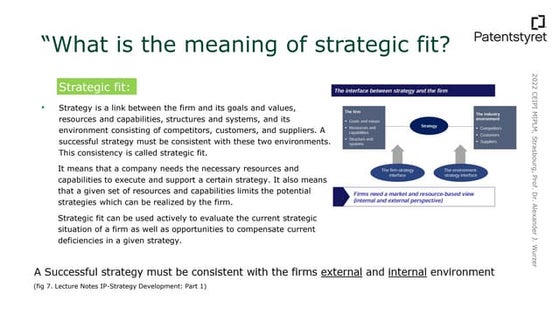



Oral exam Kenneth Bech - What is the meaning of strategic fit?MIPLM
╠²
Presentation of the CEIPI DU IPBA oral exam of Kenneth Bech - What is the meaning of strategic fit? ASP.NET Interview Questions PDF By ScholarHat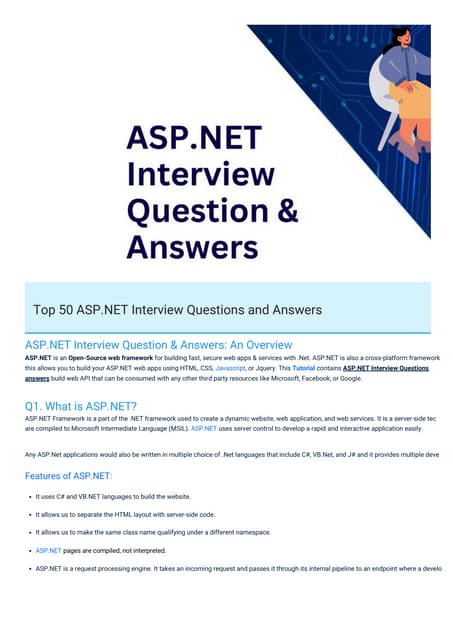



ASP.NET Interview Questions PDF By ScholarHatScholarhat
╠²
ASP.NET Interview Questions PDF By ScholarHatHelping Autistic Girls Shine Webinar ║▌║▌▀Żs



Helping Autistic Girls Shine Webinar ║▌║▌▀ŻsPooky Knightsmith
╠²
For more information about my speaking and training work, visit: https://www.pookyknightsmith.com/speaking/Bß╗ś TEST KIß╗éM TRA GIß╗«A K├ī 2 - TIß║ŠNG ANH 10,11,12 - CHUß║©N FORM 2025 - GLOBAL SU...



Bß╗ś TEST KIß╗éM TRA GIß╗«A K├ī 2 - TIß║ŠNG ANH 10,11,12 - CHUß║©N FORM 2025 - GLOBAL SU...Nguyen Thanh Tu Collection
╠²
Appreciative Inquiry Made Simple presentation
- 1. Appreciative Inquiry Division of Student Affairs San Jos├® State University 2012 Professional Development Day Presenter: Art King March 9, 2012
- 2. Appreciative Inquiry Title: Positive ways of thinking and acting on the job: An Appreciative Inquiry Approach Learning Outcomes: o Learn how to turn negative statements into (Appreciative Inquiry) positive ones o Learn how to use neutral language to focus on issues rather than on positions or problems o Gain skills that help build team and appreciation for each otherŌĆÖs contribution o Learn to better appreciate how success on the job can equate to student success and a helping and caring environment
- 3. Appreciative Inquiry o Cooperider and colleagues at Case Western University developed the theory in the 1970ŌĆÖs o Further developed/expanded upon by Cooperider and Srivastva in 1987
- 4. What is Appreciative Inquiry (AI)? o A form of action research ŌĆō tracking and fanning ŌĆō collection of peopleŌĆÖs stories about something at its best. It allows us to look at what we want MORE of o A set of tools for catalyzing change ŌĆō - Inquiry is a way of asking questions that focuses on what is possible, not what is wrong. - Metaphors help generate new ways of thinking, acting, knowing - Reframing allows us to turn negative statements into AI
- 5. What is Appreciative Inquiry (AI)? o An organizational development tool that focuses on bringing out the best in people and organizations o It focuses on what we want more of that is good, rather than what we want less of that is bad o It helps individuals in organizations honor the past and manage change ŌĆō positive change that helps to reshape the future
- 6. Appreciative Inquiry o AI is an organizational development tool aimed at bringing out the best in people and organizations, instead of viewing them as problems that need to be solved
- 7. Appreciative Inquiry o AI is the cooperative search for the best in human beings, their organizations, and the world in which they live
- 8. Appreciative Inquiry o Replaces traditional problem solving ŌĆō which focuses on what is wrong so as to fix the problem ŌĆō seeks and finds images of the possible, rather than scenes of disaster and despair
- 9. Appreciative Inquiry Traditional Approaches o Define problems o Fix what is broken o Focus on decay o How did we let this happen? Appreciative Process o Find existing solutions (what works) o Amplify what works o Focus on life-giving forces o How can we work together to get the results we want?
- 10. Appreciative Inquiry ŌĆ”Operates under the assumptions that: o In every org., ŌĆ£somethingŌĆØ works and can be valued o What we focus on becomes the reality we create o The language we use creates our reality o The act of asking a question begins the change o People have more confidence about the future when they focus on the best parts of the past (UCSC Visioning Initiative)
- 11. The Four ŌĆ£DŌĆØ Cycle of AI o Discovery Stage Appreciating what takes place in the company; what gives life to the organization. Looks at the best of what is o Dream Stage Imagining what should be within the organization; forming ideas of what might be. Envisioning impact of desired future
- 12. The Four ŌĆ£DŌĆØ Cycle of AI o Design Stage What should be ŌĆō the ideal. This involves consensus building or co-constructing ŌĆō finding out what works and what should be o Delivery Stage (Destiny) Implementation and exploration of the changes outlined in the other stages. How to empower and adjust/improvise. Sustaining. Looking at what will be
- 13. Appreciative Inquiry OK! LetŌĆÖs practiceŌĆ” LetŌĆÖs apply what we now knowŌĆ”
- 15. Appreciative Inquiry More Info? Contact: Art King Associate Vice President for Student Affairs San Jos├® State University Tel: (408) 924-5900 E-message: art.king@sjsu.edu

